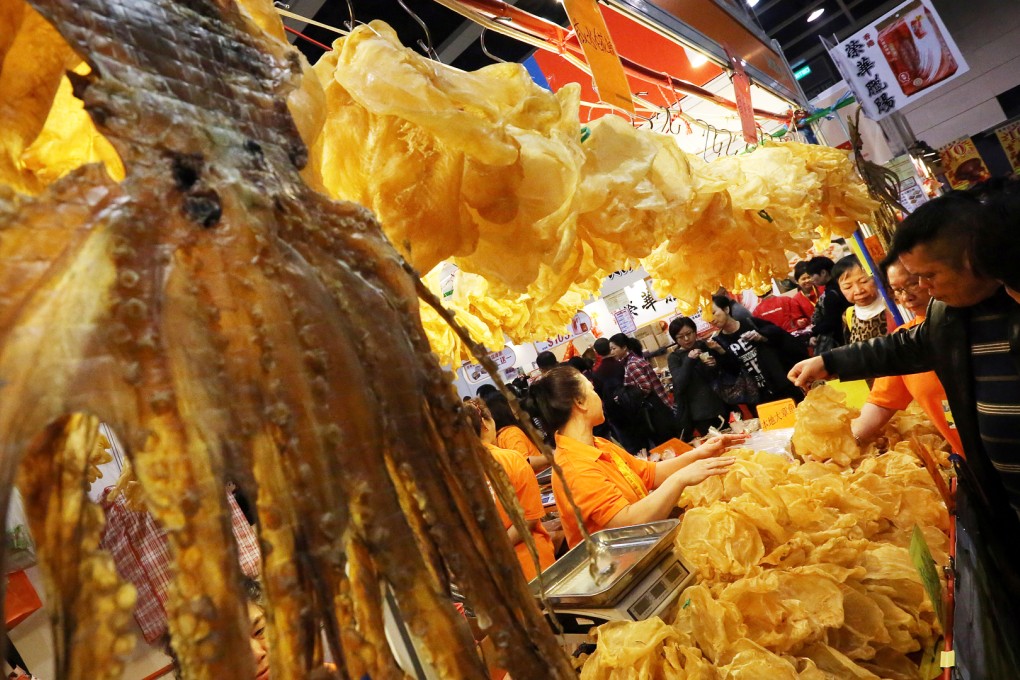‘More lucrative than cocaine’: Hong Kong retailers cashing in on endangered fish maw, Greenpeace says
Poaching of totoaba for the Hong Kong market is increasing the risk a critically endangered marine mammal will die out, Greenpeace says

More than a dozen seafood vendors are openly selling the dried swim bladders of a critically endangered species of fish, which is being smuggled into the city effortlessly from North America, a Greenpeace probe has found.
While fish bladder, also known as maw, is commonly sold in Hong Kong, totoaba bladders are a more highly prized delicacy, especially on the mainland, where they fetch up to HK$1 million per kg.
But international trade in the totoaba is banned. And poaching of totoaba is also helping drive the extinction of a rare marine mammal, the vaquita, which has a tendency to get stuck in gillnets set for totoaba, which live in the same area, the international conservation group says.
Both species are indigenous to Mexico's Gulf of California.
Recent reports estimate fewer than 100 vaquitas - a rare type of porpoise - are left in the wild. The species is expected to be wiped out by 2018 if drastic steps are not taken immediately.
